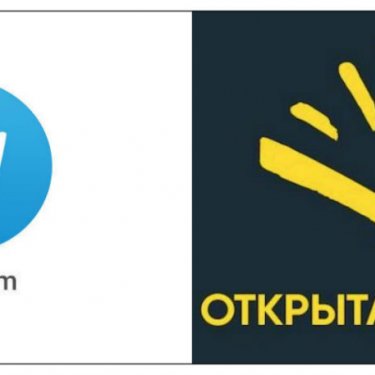Russia: Kremlin tightens grip on Internet in run-up to presidential election

Читать по-русски / Read in Russian
Reporters Without Borders (RSF) condemns a new Russian offensive against the Internet in which the encrypted instant messaging app Telegram has been fined and threatened with blocking for not surrendering its decryption keys, the Open Russia news website has been blocked without any judicial proceedings, and Twitter and YouTube are again under threat.
This latest offensive by the Russian authorities comes as the country prepares to hold a presidential election next March.
On 12 December, a Moscow appeal court upheld a decision to fine Telegram 800,000 roubles (11,500 euros) for refusing to hand over its decryption keys to Russia's Federal Security Service (FSB). It was the latest stage in a battle that has dragged on all year. If Telegram does not comply, the authorities could start blocking the service on 28 December.
The authorities base their demand for the decryption keys on the draconian terrorism law that was adopted in 2016 in the face of unanimous protests from civil society. Telegram has built its reputation on respect for free speech and privacy, and says the demand constitutes an unwarranted violation of these principles.
Telegram also insists that it does not have access to the decryption keys, which are generated on the devices of each individual user. Agora, the human rights group that is representing Telegram in this case, wrote to the UN special rapporteur for freedom of expression, David Kaye, on 13 December asking him to intercede.
Meanwhile, also on 13 December, a Moscow administrative court rejected a complaint against the FSB that had been brought by well-known independent journalist Oleg Kashin arguing that the demand for Telegram's decryption keys threatens the confidentiality of journalists' sources. A similar complaint by fellow journalist Alexander Plyushchev was rejected in October.
Blocking, actual and threatened
The recently adopted law under which websites linked to "undesirable foreign organizations" can be blocked without reference to a judge has not taken long to have an effect. The independent news and information website Open Russia was blocked in Russia on 12 December, along with all the resources linked – closely or otherwise – to the 11 organizations so far deemed to be "undesirable."
Open Russia is linked to a political movement of the same name founded by Mikhail Khodorkovsky, a Kremlin critic now living in exile, but there is no legal connection between them.
Not to be outdone, the telecommunication surveillance agency Roskomnadzor has embarked on a new wrangle with the international Internet giants, calling on Twitter, YouTube and others to delete Open Russia's accounts or risk having their services blocked within Russia. The Russian social network Odnoklassniki immediately complied.
Yesterday, Roskomnadzor ordered media outlets to delete all online links to the blocked websites on the grounds that they "help to disseminate illegal content." The outlets are likely to take the order seriously. The News Times website already received a formal warning in late November over three links to "illegal content" – pages containing swearwords.
"The Russian authorities have been constantly tightening their Internet legislation in recent years and this is the result – an unprecedented level of censorship," said Johann Bihr, the head of RSF's Eastern Europe and Central Asia desk.
"These latest attacks on freedom of expression violate the Russian constitution and the European Convention on Human Rights. We again call on the Russian authorities to repeal these draconian laws and to respect their international obligations."
Another incident is indicative of preparations for next March's election. Android users in Russia searching YouTube on 29 November suddenly encountered error messages in response to searches for opposition leader Alexei Navalny, independent media such as Novaya Gazeta, Dozhd, Meduza and Open Russia, and the blogger Dmitry Ivanov. But the searches worked if the names were misspelled or a VPN was used. YouTube's owner, Google, fixed the "problem" that evening without providing any explanation.
Russia is ranked 148th out of 180 countries in RSF’s 2017 World Press Freedom Index.
Still very free just a few years ago, the Russian Internet has been reined in since the crackdown on a wave of big demonstrations against electoral fraud in 2011 and 2012.
A few opposition demonstrations in 2017 have drawn large crowds of young people, suggesting that the Internet generation is less influenced than its elders by the propaganda on the big TV channels. President Vladimir Putin has just announced that he is running for a fourth term.



